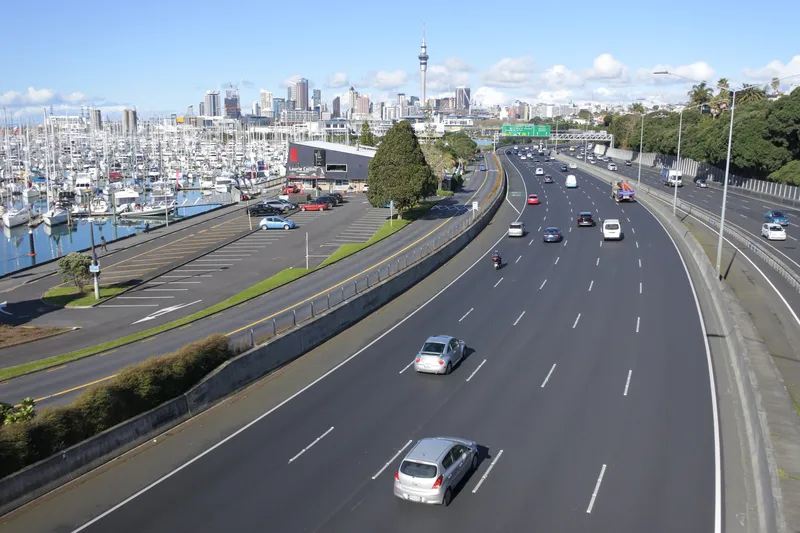
New Zealand's opposition National party has said it will roll back some of the ruling Labour party's reforms on road speed limits.
The speed reductions were designed to improve road safety.
The country holds a general election on 14 October - and if National wins, it says that it will look at increasing speed limits on new highways to 110km/h, while returning many state highways to 100km/h (up from 80km/h) and local roads to 50km/h (up from 30km/h).
The party's transport spokesman Simeon Brown said: "Where it's safe to do so, we will reinstate the previous speed limit."
He also said changes were required to the way highway workzones were operated, with "unecessary" use of road cones and temporary speed limit restrictions to be looked at "while also maintaining the health and safety of our road workers".
National has criticised what it calls Labour's "blanket approach" to speed limits and wants to speed up traffic.
"This inflexible approach is unnecessarily slowing Kiwis down and harming economic activity by increasing travel times," insisted National leader Christopher Luxon.
A win for his party would lead to "a more balanced approach", he added.









